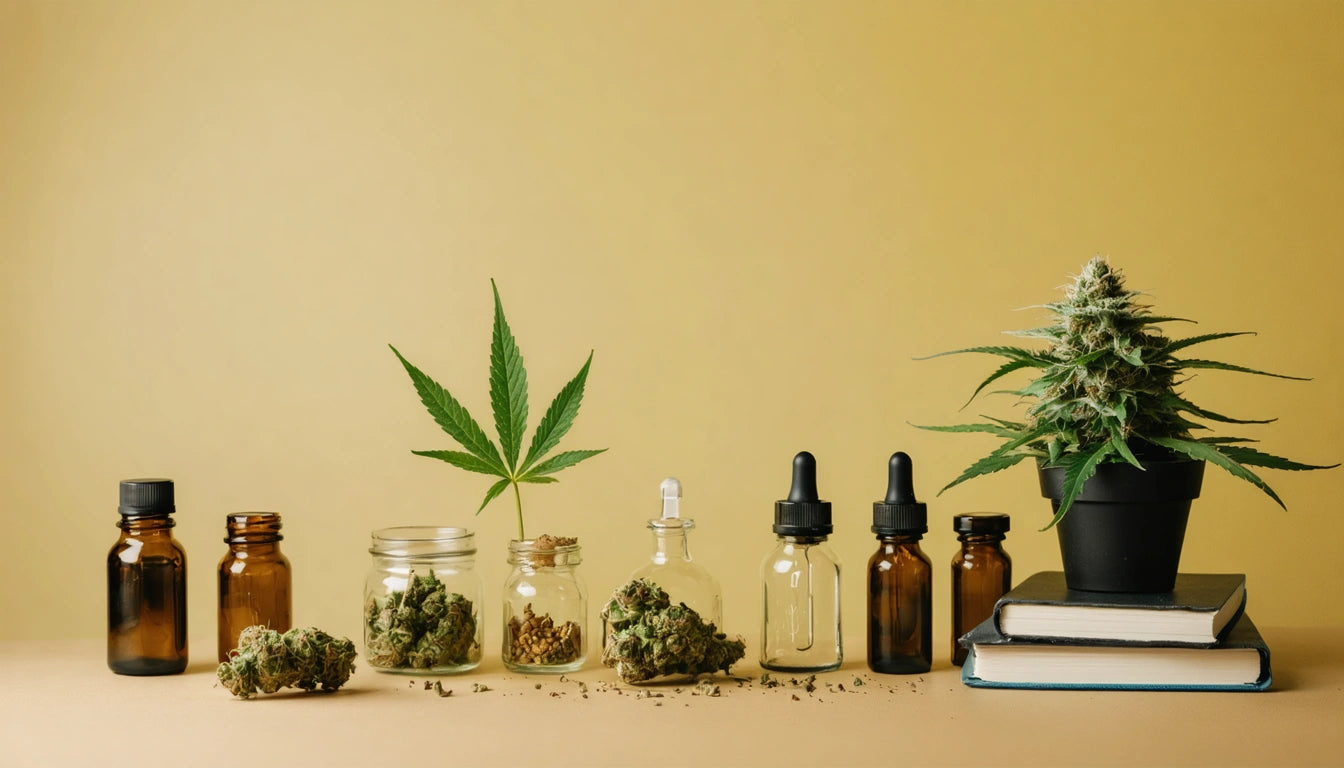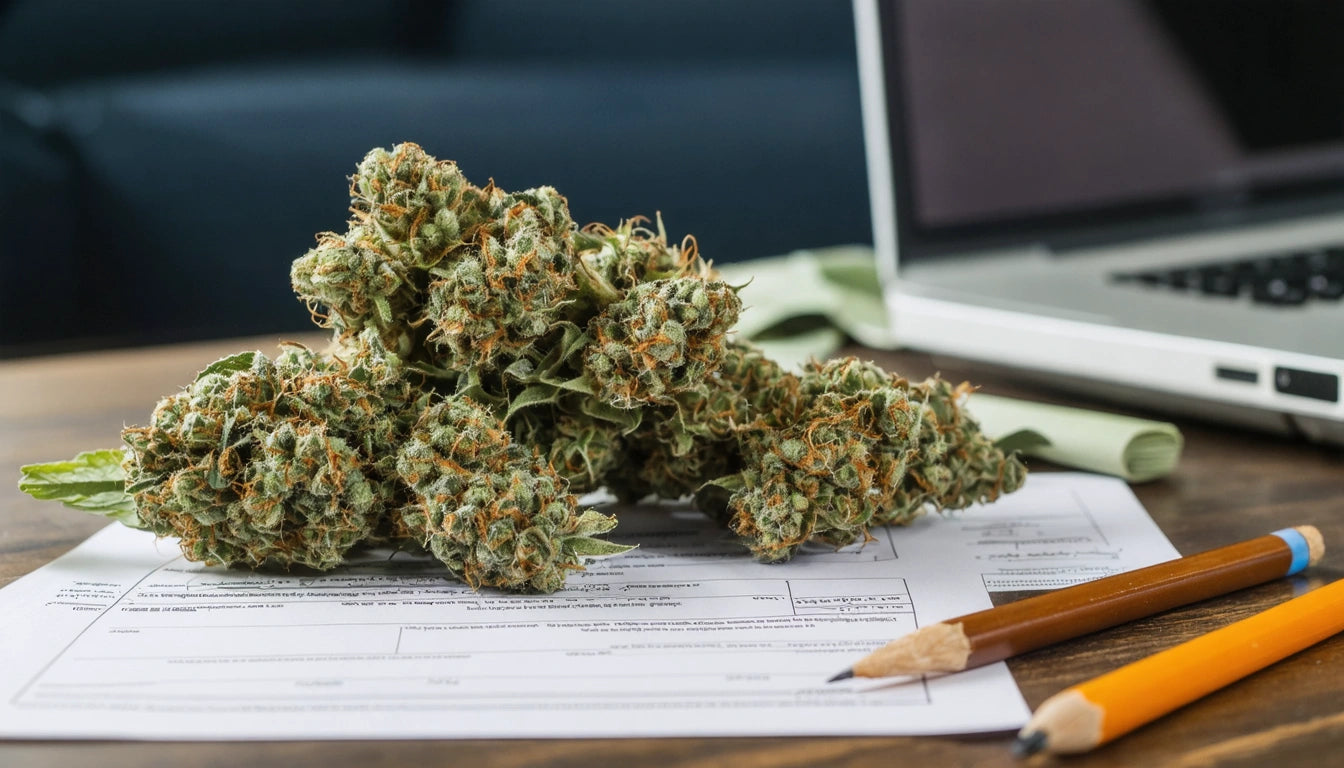Table of Contents
Can Smoking Marijuana Lead to COPD?
Chronic Obstructive Pulmonary Disease (COPD) is a progressive lung condition that causes breathing difficulties and can significantly impact quality of life. While tobacco smoking is the primary cause of COPD, many cannabis users wonder if their habit carries similar risks. This article examines the relationship between marijuana smoking and COPD, backed by current research and expert insights.
Understanding COPD: The Basics
COPD encompasses several progressive lung diseases, primarily emphysema and chronic bronchitis. These conditions cause airflow blockage and breathing-related problems that worsen over time. The primary symptoms include:
- Shortness of breath, especially during physical activity
- Chronic cough with mucus production
- Wheezing and chest tightness
- Frequent respiratory infections
Tobacco smoke is the leading cause of COPD, responsible for up to 80% of cases according to the American Lung Association. The harmful chemicals in smoke damage the lungs' airways and air sacs (alveoli), leading to inflammation and permanent structural changes.
Marijuana Smoking and Its Respiratory Effects
When considering whether smoking weed affects your lungs, it's important to understand that cannabis smoke contains many of the same toxins and carcinogens found in tobacco smoke, albeit in different concentrations.
Research indicates that marijuana smoke contains particulate matter and chemicals that can irritate the lungs and bronchial passages. Regular cannabis smokers often report symptoms similar to tobacco smokers, including:
- Chronic cough
- Increased phlegm production
- Wheezing
- Acute bronchitis
Research Findings on Cannabis and COPD
Current Evidence on Marijuana and COPD Risk
The question "does smoking weed cause COPD" doesn't have a straightforward answer. Current research presents mixed findings:
A systematic review published in the journal Chronic Obstructive Pulmonary Diseases found that while cannabis smoking is associated with increased respiratory symptoms and chronic bronchitis, the evidence for airflow obstruction (the hallmark of COPD) is less consistent than with tobacco.
Another study in the Canadian Medical Association Journal suggested that heavy marijuana smoking (more than 20 joint-years) was associated with an increased risk of COPD, particularly when combined with tobacco use.
Comparing Cannabis and Tobacco Effects
When examining whether pot causes COPD, it's important to note several differences from tobacco:
- Cannabis users typically smoke less material by volume than tobacco smokers
- Marijuana smoking techniques often involve deeper inhalation and longer breath-holding, potentially increasing exposure to harmful substances
- Cannabis contains cannabinoids like THC and CBD, which have anti-inflammatory properties that might partially counteract some harmful effects
As noted in this article on cannabis and lung health, the relationship between marijuana use and respiratory conditions is complex and continues to be studied.
Risk Factors That Increase COPD Susceptibility
Several factors may increase the likelihood that smoking cannabis could cause COPD:
Combined Tobacco and Cannabis Use
Dual use of tobacco and marijuana significantly increases COPD risk. The harmful effects appear to be additive or potentially synergistic, making this combination particularly concerning for respiratory health.
Frequency and Duration of Use
Heavy, long-term cannabis smoking is more strongly associated with respiratory symptoms and potential COPD risk than occasional use. Similar to emphysema risk from cannabis, cumulative exposure appears to be an important factor.
Individual Health Factors
Pre-existing respiratory conditions, genetic factors, and overall health status can influence how marijuana smoke affects an individual's lungs and their susceptibility to developing COPD.
Safety considerations extend beyond respiratory health. For example, proper safety protocols for cannabis storage are essential to prevent accidental ingestion, particularly in households with children.
Alternative Consumption Methods to Reduce Respiratory Risks
For those concerned about whether marijuana causes COPD, several alternative consumption methods can reduce respiratory risks:
Vaporizing
Vaporizing heats cannabis to a temperature that releases cannabinoids without combustion, potentially reducing exposure to harmful byproducts of smoking. However, vaping comes with its own set of potential risks that are still being studied.
Edibles and Tinctures
Oral consumption methods eliminate respiratory exposure entirely. Edibles, tinctures, and oils provide alternative ways to consume cannabis without any risk to lung health.
Topicals
For those using cannabis primarily for localized pain relief, topical applications avoid both respiratory and psychoactive effects while providing targeted benefits.
Preventative Measures and Health Considerations
If you're concerned about can you get COPD from smoking weed, consider these preventative measures:
- Regular health check-ups with honest reporting of cannabis use to healthcare providers
- Monitoring for early signs of respiratory issues
- Considering lower-risk consumption methods
- Avoiding mixing cannabis with tobacco
- Using in moderation or taking breaks to allow respiratory recovery
It's worth noting that legal considerations may impact cannabis use for certain professions. For instance, questions about whether police officers can legally use cannabis or how legal professionals navigate marijuana use in legal states add complexity to this topic.
While research continues to evolve on whether smoking weed can cause COPD, the current evidence suggests that heavy, long-term cannabis smoking may contribute to respiratory symptoms and potentially increase COPD risk, particularly when combined with tobacco use. However, the relationship appears less strong than the well-established link between tobacco smoking and COPD.
For cannabis users concerned about respiratory health, considering alternative consumption methods and practicing moderation represent prudent approaches to reducing potential risks while research in this area continues to develop.











Leave a comment
All comments are moderated before being published.
This site is protected by hCaptcha and the hCaptcha Privacy Policy and Terms of Service apply.